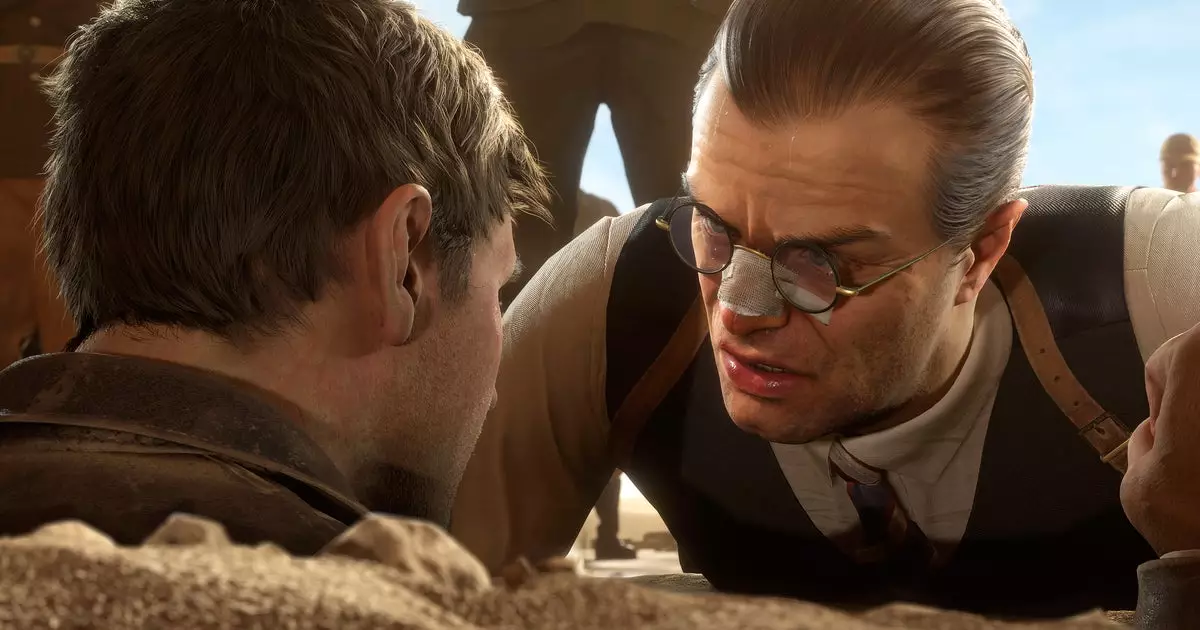The world of video games often intertwines entertainment with historical allegory, a combination that can generate significant discourse about the depictions of sensitive subjects. The upcoming release of *Indiana Jones and the Great Circle* by MachineGames is a prime example of this phenomenon, drawing both ire and intrigue over its treatment of Nazi themes. While escapist entertainment is the aim, the game’s narrative and obscure ethical implications raise questions about the portrayal of historically antagonistic figures – particularly the Nazis.
Indiana Jones is a character famously known for his aversion to the Nazis, as famously articulated in *Raiders of the Lost Ark* with his unambiguous disdain: “Nazis – I hate these guys!” But this righteous animosity raises an eyebrow in terms of narrative honesty within the videogame milieu. With *Indiana Jones and the Great Circle*, players are cast into battles against a multitude of Nazi characters, inviting discourse about the line between combatting antagonist ideologies and inadvertently providing a platform for sensationalism.
Moreover, this brings forth the notion that avid gamers may grapple with an abstinent portrayal of their enemies. As the protagonist, players will immerse themselves in an environment that is unflinchingly anti-Nazi. However, the notion of battling such figures can become a problematic engagement, especially when considering the complexities surrounding representations of oppression and monstrosity in a format often geared more toward thrilling escapism than nuanced commentary.
The Role of Disclaimers and Their Cultural Repercussions
In a society increasingly aware of historical sensitivities, the inclusion of disclaimers in video games seems almost standard practice. In *Indiana Jones and the Great Circle*, MachineGames has provided a disclaimer clarifying that the portrayal of Nazis “is not intended to condone or glorify the beliefs or actions” of the regime. While legal caution often drives such decisions, the need for a disclaimer also showcases a palpable tension between creative expression and moral accountability in modern media.
Disclaimers serve as disclaimers to mitigate repercussions but may not fully erase the cultural responsibility creators carry. Disclaiming the glorification of historical atrocities can appear moot when the experience invites players to engage in exaggerated violence against those very figures. The question remains: how effective truly is such a disclaimer when confronted with documented instances of video game modding or opportunistic reinterpretation by extremist groups?
The artistic license taken by developers often involves blurring historical fact with fictional embellishment. With *Indiana Jones and the Great Circle*, players might find themselves in scenarios that amplify both the cartoonish villainy of the Nazis and a glorification of the action genre, where realism takes a back seat. The potential for it to become what some may perceive as a “Third Reich Bullying Simulator” complicates the ethos of the gameplay experience.
Engaging with such material also raises significant ethical concerns regarding the potential shaping of player perspective and the normalization of historical violence. Is it possible that these portrayals, while violent and ridiculing, could foster an unintended sense of camaraderie or admiration for the archetypal hero’s journey, even against an undeniably evil regime?
The Future of Gaming: A Cautionary Tale
As video games continue to evolve into sophisticated storytelling mediums, examining the moral and ethical implications of their narratives cannot be overlooked. *Indiana Jones and the Great Circle* embodies a microcosm of the problematic interplay between historical representation and audience engagement. While the opportunity for epic escapades versus moral ambiguity remains a thrilling contrast in storytelling, game developers must remain cognizant of the weighty subject matter they address.
In sum, as players don the fedora and step into the shoes of Indiana Jones, the journey will raise reflections not just about the nature of heroes and villains, but also about the complex layers of narrative ethics, historical engagement, and the responsibilities of creators in portraying contentious periods in history. The line is indeed thin, but traversing it with consideration and nuance could ultimately enrich both the gaming experience and societal discourse at large.

